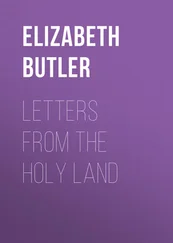Daniel Defoe - From London to Land's End and Two Letters from the Journey through England by a Gentleman
Здесь есть возможность читать онлайн «Daniel Defoe - From London to Land's End and Two Letters from the Journey through England by a Gentleman» — ознакомительный отрывок электронной книги совершенно бесплатно, а после прочтения отрывка купить полную версию. В некоторых случаях можно слушать аудио, скачать через торрент в формате fb2 и присутствует краткое содержание. Издательство: Иностранный паблик, Жанр: foreign_antique, foreign_prose, на английском языке. Описание произведения, (предисловие) а так же отзывы посетителей доступны на портале библиотеки ЛибКат.
- Название:From London to Land's End and Two Letters from the Journey through England by a Gentleman
- Автор:
- Издательство:Иностранный паблик
- Жанр:
- Год:неизвестен
- ISBN:нет данных
- Рейтинг книги:3 / 5. Голосов: 1
-
Избранное:Добавить в избранное
- Отзывы:
-
Ваша оценка:
- 60
- 1
- 2
- 3
- 4
- 5
From London to Land's End and Two Letters from the Journey through England by a Gentleman: краткое содержание, описание и аннотация
Предлагаем к чтению аннотацию, описание, краткое содержание или предисловие (зависит от того, что написал сам автор книги «From London to Land's End and Two Letters from the Journey through England by a Gentleman»). Если вы не нашли необходимую информацию о книге — напишите в комментариях, мы постараемся отыскать её.
From London to Land's End and Two Letters from the Journey through England by a Gentleman — читать онлайн ознакомительный отрывок
Ниже представлен текст книги, разбитый по страницам. Система сохранения места последней прочитанной страницы, позволяет с удобством читать онлайн бесплатно книгу «From London to Land's End and Two Letters from the Journey through England by a Gentleman», без необходимости каждый раз заново искать на чём Вы остановились. Поставьте закладку, и сможете в любой момент перейти на страницу, на которой закончили чтение.
Интервал:
Закладка:
At the west gate of this city was anciently a castle, known to be so by the ruins more than by any extraordinary notice taken of it in history. What they say of it, that the Saxon kings kept their court here, is doubtful, and must be meant of the West Saxons only. And as to the tale of King Arthur’s Round Table, which they pretend was kept here for him and his two dozen of knights (which table hangs up still, as a piece of antiquity to the tune of twelve hundred years, and has, as they pretend, the names of the said knights in Saxon characters, and yet such as no man can read), all this story I see so little ground to give the least credit to that I look upon it, and it shall please you, to be no better than a fib.
Where this castle stood, or whatever else it was (for some say there was no castle there), the late King Charles II. marked out a very noble design, which, had he lived, would certainly have made that part of the country the Newmarket of the ages to come; for the country hereabout far excels that of Newmarket Heath for all kinds of sport and diversion fit for a prince, nobody can dispute. And as the design included a noble palace (sufficient, like Windsor, for a summer residence of the whole court), it would certainly have diverted the king from his cursory journeys to Newmarket.
The plan of this house has received several alterations, and as it is never like to be finished, it is scarce worth recording the variety. The building is begun, and the front next the city carried up to the roof and covered, but the remainder is not begun. There was a street of houses designed from the gate of the palace down to the town, but it was never begun to be built; the park marked out was exceeding large, near ten miles in circumference, and ended west upon the open Downs, in view of the town of Stockbridge.
This house was afterwards settled, with a royal revenue also, as an appanage (established by Parliament) upon Prince George of Denmark for his life, in case he had out-lived the queen; but his Royal Highness dying before her Majesty, all hope of seeing this design perfected, or the house finished, is now vanished.
I cannot omit that there are several public edifices in this city and in the neighbourhood, as the hospitals and the building adjoining near the east gate; and towards the north a piece of an old monastery undemolished, and which is still preserved to the religion, being the residence of some private Roman Catholic gentlemen, where they have an oratory, and, as they say, live still according to the rules of St. Benedict. This building is called Hide House; and as they live very usefully, and to the highest degree obliging among their neighbours, they meet with no obstruction or disturbance from anybody.
Winchester is a place of no trade other than is naturally occasioned by the inhabitants of the city and neighbouring villages one with another. Here is no manufacture, no navigation; there was indeed an attempt to make the river navigable from Southampton, and it was once made practicable, but it never answered the expense so as to give encouragement to the undertakers.
Here is a great deal of good company, and abundance of gentry being in the neighbourhood, it adds to the sociableness of the place. The clergy also here are, generally speaking, very rich and very numerous.
As there is such good company, so they are gotten into that new-fashioned way of conversing by assemblies. I shall do no more than mention them here; they are pleasant and agreeable to the young peoples, and sometimes fatal to them, of which, in its place, Winchester has its share of the mirth. May it escape the ill-consequences!
The hospital on the south of this city, at a mile distant on the road to Southampton, is worth notice. It is said to be founded by King William Rufus, but was not endowed or appointed till later times by Cardinal Beaufort. Every traveller that knocks at the door of this house in his way, and asks for it, claims the relief of a piece of white bread and a cup of beer, and this donation is still continued. A quantity of good beer is set apart every day to be given away, and what is left is distributed to other poor, but none of it kept to the next day.
How the revenues of this hospital, which should maintain the master and thirty private gentlemen (whom they call Fellows, but ought to call Brothers), is now reduced to maintain only fourteen, while the master lives in a figure equal to the best gentleman in the country, would be well worth the inquiry of a proper visitor, if such can be named. It is a thing worthy of complaint when public charities, designed for the relief of the poor, are embezzled and depredated by the rich, and turned to the support of luxury and pride.
From Winchester is about twenty-five miles, and over the most charming plains that can anywhere be seen (far, in my opinion, excelling the plains of Mecca), we come to Salisbury. The vast flocks of sheep which one everywhere sees upon these Downs, and the great number of those flocks, is a sight truly worth observation; it is ordinary for these flocks to contain from three thousand to five thousand in a flock, and several private farmers hereabouts have two or three such flocks.
But it is more remarkable still how a great part of these Downs comes, by a new method of husbandry, to be not only made arable (which they never were in former days), but to bear excellent wheat, and great crops, too, though otherwise poor barren land, and never known to our ancestors to be capable of any such thing – nay, they would perhaps have laughed at any one that would have gone about to plough up the wild downs and hills where the sheep were wont to go. But experience has made the present age wiser and more skilful in husbandry; for by only folding the sheep upon the ploughed lands – those lands which otherwise are barren, and where the plough goes within three or four inches of the solid rock of chalk, are made fruitful and bear very good wheat, as well as rye and barley. I shall say more of this when I come to speak of the same practice farther in the country.
This plain country continues in length from Winchester to Salisbury (twenty-five miles), from thence to Dorchester (twenty-two miles), thence to Weymouth (six miles); so that they lie near fifty miles in length and breadth; they reach also in some places thirty-five to forty miles. They who would make any practicable guess at the number of sheep usually fed on these Downs may take it from a calculation made, as I was told, at Dorchester, that there were six hundred thousand sheep fed within six miles of that town, measuring every way round and the town in the centre.
As we passed this plain country, we saw a great many old camps, as well Roman as British, and several remains of the ancient inhabitants of this kingdom, and of their wars, battles, entrenchments, encampments, buildings, and other fortifications, which are indeed very agreeable to a traveller that has read anything of the history of the country. Old Sarum is as remarkable as any of these, where there is a double entrenchment, with a deep graff or ditch to either of them; the area about one hundred yards in diameter, taking in the whole crown of the hill, and thereby rendering the ascent very difficult. Near this there is one farm-house, which is all the remains I could see of any town in or near the place (for the encampment has no resemblance of a town), and yet this is called the borough of Old Sarum, and sends two members to Parliament. Whom those members can justly say they represent would be hard for them to answer.
Some will have it that the old city of Sorbiodunum or Salisbury stood here, and was afterwards (for I know not what reasons) removed to the low marshy grounds among the rivers, where it now stands. But as I see no authority for it other than mere tradition, I believe my share of it, and take it ad referendum .
Читать дальшеИнтервал:
Закладка:
Похожие книги на «From London to Land's End and Two Letters from the Journey through England by a Gentleman»
Представляем Вашему вниманию похожие книги на «From London to Land's End and Two Letters from the Journey through England by a Gentleman» списком для выбора. Мы отобрали схожую по названию и смыслу литературу в надежде предоставить читателям больше вариантов отыскать новые, интересные, ещё непрочитанные произведения.
Обсуждение, отзывы о книге «From London to Land's End and Two Letters from the Journey through England by a Gentleman» и просто собственные мнения читателей. Оставьте ваши комментарии, напишите, что Вы думаете о произведении, его смысле или главных героях. Укажите что конкретно понравилось, а что нет, и почему Вы так считаете.












